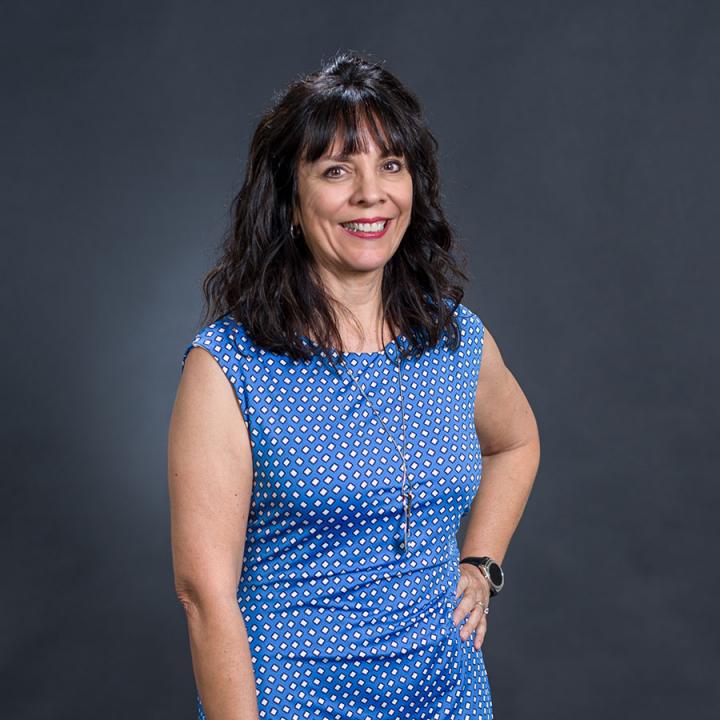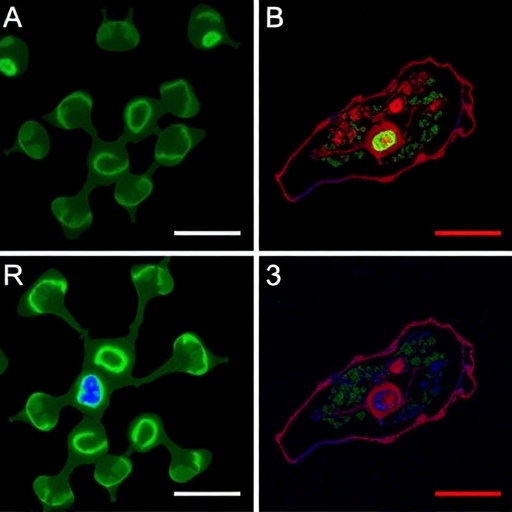
Credit: Sun Czar Belous
PHOENIX – A cell phone app for pregnant women and new moms struggling with opioid addiction is helping them get to doctor appointments on time, chat online with counselors, message their physician and watch videos that teach them about changing their behavior.
“Pregnant and parenting women who are in the process of recovery have so many issues to deal with,” said Maria Manriquez, MD, director of the Addiction Medicine curriculum and professor in the Department of Obstetrics and Gynecology at the University of Arizona College of Medicine – Phoenix. “Even with coordinated care, such as medical homes, a huge gap exists. This is especially prevalent when part of the ‘prescription’ includes medication, obstetric and addiction medicine visits, counseling, support groups and learning new material such as cognitive behavioral therapy techniques.”
iTether Technologies Inc. developed a digital care management platform that can be used via a smartphone app to improve care coordination and treatment of individuals with substance use disorder (SUD). Dr. Manriquez is partnering with the company to enhance the platform specifically for pregnant women and new moms with SUD.
The app was among 10 first-round winners of a “Grand Challenge” created by the Health Resources and Services Administration’s Maternal and Child Health Bureau to address opioid use disorder in pregnant women and new moms. The Health Resources and Services Administration is an agency of the U.S. Department of Health and Human Services. It is the primary federal agency for improving access to health care services for people who are uninsured, isolated or medically vulnerable.
Phase 1 winners received a share of a $100,000 cash prize and continue to Phase 2. The UA-iTether partnership will use its $10,000 grant to enhance content on the app and begin small-scale testing through August 2019. Grand Challenge entrants included multi-disciplinary teams of academics, health professionals, tech companies, as well as individuals and community groups.
Along with Dr. Manriquez, iTether Chief Clinical Officer Karen Burstein, PhD, is leading the project. iTether is a Phoenix-based provider of application development for behavior change services. Sean Gunderson, CEO and co-founder of iTether, said he believes the first step in the fight against substance abuse starts by transforming the way treatment is delivered to patients struggling with addiction.
Unique to the platform are personalized care plans, online education, telehealth access to clinicians and tracking of progress toward recovery.
“Care coordination and management, especially for pregnant women with substance-use disorder in rural communities, is essential to effective treatment and support,” Dr. Burstein said. “Patient-centered care coordination originally was developed to improve the health outcomes of individuals with chronic conditions and/or multi-system involvement that frequently required interdisciplinary care. We are proposing to adapt the iTether care management system for use with both English- and Spanish-speaking women with substance use disorder and release it on a limited basis to patients under the care of Dr. Manriquez and her colleagues.”
iTether’s digital system of care management consists of a smartphone application for patients and a secure portal for clinicians that enables continuous communication with patients, and a comprehensive recovery program through which patients work on their health, sobriety and recovery. Currently, most patients attend class in person. Some of these sessions could be delivered through a streaming platform which would allow the classes to be taught from anywhere.
“Often, patients have transportation or child care limits that restrict reliable and quality care. It is not easy as a full-time parent, employee or student to make and keep appointments, especially when there is no coordination in timing of visits for someone with a chronic disorder,” Dr. Manriquez said. “The prototype could benefit the community by setting guidelines and developing standards that help providers deliver consistent messaging to patients.”
The iTether partnership is one example of how the medical school is working to combat the opioid epidemic. In September 2018, Dr. Manriquez received a $700,000 grant from the Arizona Health Care Cost Containment System (AHCCCS) to begin a clinic for pregnant and parenting women with substance use disorder at Banner – University Medical Center’s Women’s Institute in Phoenix. Additionally, the funding will enable tele-mentoring and education for providers caring for these women.
###
About the UA College of Medicine – Phoenix
Founded in 2007, the University of Arizona College of Medicine – Phoenix inspires and trains exemplary physicians, scientists and leaders to optimize health and health care in Arizona and beyond. By cultivating collaborative research locally and globally, the college accelerates discovery in a number of critical areas — including cancer, stroke, traumatic brain injury and cardiovascular disease. Championed as a student-centric campus, the college has graduated 433 physicians, all of whom received exceptional training from nine clinical partners and 1,800 diverse faculty members. As the anchor to the Phoenix Biomedical Campus, which is projected to have an economic impact of $3.1 billion by 2025, the college prides itself on engaging with the community, fostering education, inclusion, access and advocacy. For more information, please visit phoenixmed.arizona.edu.
Media Contact
Teresa Joseph
[email protected]
Original Source
https:/




